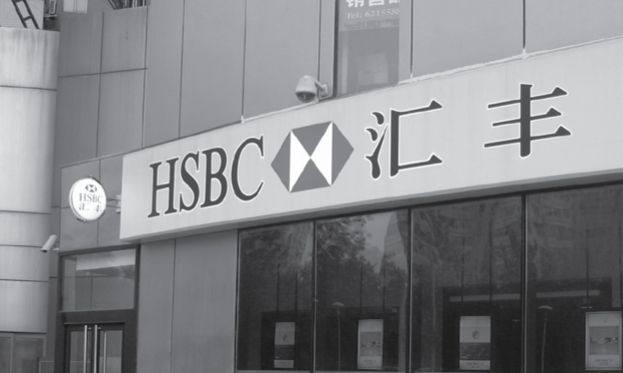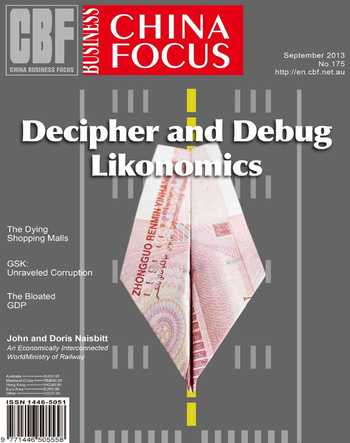Overjoyed,Foreigners Get in Fund Sale
After several rounds of discussions, negotiations and weighing, the Chinese government finally nodded to foreign banks about their qualifications of selling funds as the commission agent.
The license was given out on June 26 and 8 banks were the first foreign banks to get that qualification in China.
Foreign banks applauded the new change. For those foreign banks, the license of selling funds means that they can get access to the fast-growing and extremely lucrative fund sale market, regardless of their small number of business outlets and the high HR cost in China. They can drive their retail business through the development of assets management services.
And for these fund companies which have been suffering from the limitation in distribution channels for long, the cooperation with foreign banks, which might expand their sales channels, is also promising and exciting.
The Licensed Banks
The first group of foreign banks that got the license on June 26 include:
HSBC, Citibank, Bank of East Asia(BEA), Hangseng Bank, United Overseas Bank, DBS Bank, Standard Chartered and Nanyang Commercial Bank(note: all the banks here refer to their Chinese branches). They got the written or oral approval from the Chinese Securities Regulatory Commission (CBRC) to sell funds on a commission basis in China.
Upon the approval, the former profit chain of fund industry is broken. Before that, the CSRC and Chinese Banking Regulatory Commission(CBRC) published the new version of Management Methods of Securities DealersInvestment into Fund Consignment, which opened the industry of fund consignment to them.
Many foreign banks have already opened up their arms to the cooperation. It is known that Citibank China have already started the cooperation with Jingshun Great Wall Fund and Manlife Teda Fund Management. Meanwhile, this U.S. bank has already reached cooperative intention with other seven fund companies and are talking with them on the details.
HSBC, which is the best developed foreign bank in China, chose HSBC Jintrust as its first partner in selling funds in China. In the second half of this year, more fund companies will join in the rank of HSBCs partners.
Standard Chartered is also extensively and actively seeking partnership with several of the Top 10 fund companies in China and some of the negotiations have already entered the last period. Like them, most foreign banks are not satisfied with one or two partners, and have made up their minds to extend the cooperation.
In addition, most of the banks chose to initiate their sale of funds in July. Different branches have different schedules of selling funds.
Confidence of Everyone
After getting the license, senior executives of each foreign bank holds confidence in their business of selling funds on a commission basis.
The President of Personal Banking at Standard Chartered Greater China said that the license of selling funds will further increase the product categories of assets management. More importantly, Standard Chartered will provide more multiplied choices for consumers concerning assets distribution.
Andrew Au, President and CEO of Citibank China, said that the initiation of selling funds in China not only further enriches the current assets management services of Citibank China, but also provides a new growth point for its business in the market as important as China.
Hwang Bijuan, Vice Board Chairman, President and CEO of HSBC China said that the sale of funds on a commission basis is a good addition to the asset management and investment product. It also expands foreign banksdistribution channels, encouraging them to expand the assets management market in China.
Kwan Tat Cheong, executive direc- tor and President of BEA, said that BEA began to prepare for the sale of funds from 2008. After years development, it is qualified in both the software and hardware for the sale of funds on a commission basis. BEA thinks highly of its fund business in China. Though the competition is still very furious, BEA is very confident and thinks highly of the role of fund sale in their business in China.
Li Weiwei, General Manager of Bank of Overseas Chineses private banking section, said that Bank of Overseas Chinese is now applying for the license of selling funds. A great advantage of foreign banks, as Li Weiwei said, is its background as the “foreign bank”. With the help of their headquarters, or other regional branches, they may integrate their local businesses in China with foreign assets management product.
However, whether the development can go well as foreign banks wishes remains unknown.
“My equity funds have already been hung up and the hybrid funds did not go well either,” said Mr. Liu, a man who has bought funds as a way of investment for a while. This reflects the depression of Chinas fund industry.Another proof is that Chinese banks have put the documents about funds aside to an inconspicuous corner of their business halls, while these assets management products with a high yield are placed at the eye-catching areas. Many experienced people say that they prefer the assets management product with less risk at this moment.

The Great Profits
Even though the status quo of fund market is not that great, foreign banks are still swarming, or wanting to get, into this market because of the great profits the industry has.
Before the issuance of the license, the profits of selling funds is shared by the Top 5 state-owned commercial banks in China and the securities dealers who have got the qualification of selling funds.
In 2012, there were 19 Chinese commercial banks joining in the rank of selling funds and they earned the trustee fee of RMb4.871 billion. The Top 5 banks almost took 90% of the income, which amounted to RMB4.315 billion.
According to the statistical data, Industrial and Commercial Bank of China(ICBC) and China Construction Bank(CCB) respectively earned the profits of RMB1.429 billion and 1.185 billion, accounting for 50% of the entire volume. Bank of China (BOC), Agriculture Bank of China (ABC) and Bank of Communications (BOCOM) respectively earned the trustee fee of RMB 754 million, 557 million and 390 million.
“The cost commercial banks spend on trustee is not more than 0.08% of the total cost of a fund, but the trustee fee usually takes 0.25%-0.3% of the total income,” said Zhuang Zheng, a research director from a fund research center. “The trustee fee rate in overseas countries is flexible and without lower limit, so the profits are less high than in China.”
Apart from the trust fee, commercial banks could also share profits of selling funds based on some agreements, which are hard to be determined by a single figure, but definitely higher than the trustee fee. Presently, commercial banks income from selling funds on a commission basis mainly comes from the subscription to the funds and the management fees. The subscription fees, which account for 1.2%-1.5% of the income of selling fund, are completely taken by the banks, while the management fees, which take 1.5% of the total income, are shared by banks and fund companies. In addition, Chinese banks often take additional 1% of the income in the name of “customer maintenance fees”, and require the dividends, commissions, and marketing fees from fund companies.
Excited Fund Companies
As shown above, a lot of fund companies profits from selling their own fund products are taken from the banks. Therefore, they are also excited by the license given to foreign banks.
“I have expected it a bit. Even though it is hard to break down the monopolization of the Top 5 banks, the more choices, the better, anyway,” said a senior executive of a fund company.
“We are prone, not reluctant to, at least, to work with foreign banks. We want to see how eager they want to work with us and what benefits they could offer to us,” said a senior executive of one of the top fund companies in Shanghai. “The Top 5 banks have more business halls, but their customers are mainly low in income and usually have no spare money for funds. Foreign banks are better than Chinese banks in this matter, and they could reach global clients.”
A fund practitioner who had carefully studied the foreign banks with the license of selling funds said that the services foreign banks offer are fairer than domestic banks, which add a lot of unequal terms in the contracts. “For example, all the losses are shouldered by fund companies. And, when calculating the everyday net balance of funds, fund companies make the first liquidation and then send the data to the banks, which make another round of liquidation. Any gap between the data resulted from the two calculations is attributed to fund companies, which are forced to afford any loss,” he said.
“Foreign bank do not do this. They also provide information for the fund companies to see whether they miss any indices to cause the difference,” the executive added.
The Differentiation as the Key
Whether foreign banks can have a foothold in the sale of funds in China is largely dependent on, as many experts believe, whether they can provide differentiated services.
Howbuy Funds Research Centers director Le Jiaqing said that it is a matter of time for foreign banks to get the license of selling funds. The key problem lies with how they will compete with Chinese banks while they are greatly outnumbered in business halls.
“For long, Chinese banks, which have unbeatable advantages in the distribution channels, play the major role of selling funds in China. The statistical data revealed that 60% of funds are sold through banks, 30% through fund companies themselves and the rest 10% through securities dealers,” he said. “The foreign banks cannot stand equally against Chinese banks with the smaller number of business halls in a short while. And if they cannot improve the sales volume, their ability of pricing will be definitely weakened.”
“We offer person-to-person services, meaning that a client manager is assigned to a customer to provide him/ her with full-purpose, all-round and comprehensive services. In that way could we understand the financial conditions and investment experiences of the customer, based on which we can tailor high-quality assets management services for them,” said a director from HSBC.
“Foreign banks can invest in different fields from fund companies. So the two parties can complement each other. Foreign banks can achieve some things through fund companies which they used to have no chance. For example, they can earn larger QDII from fund companies or raise more funds for overseas investment. There is a great space for the two parties cooperation and Chinese fund companies can learn advanced assets management fees from foreign banks,” said an expert.
Can foreign banks change the situation of fund industry in China? The time will give you the answer.

